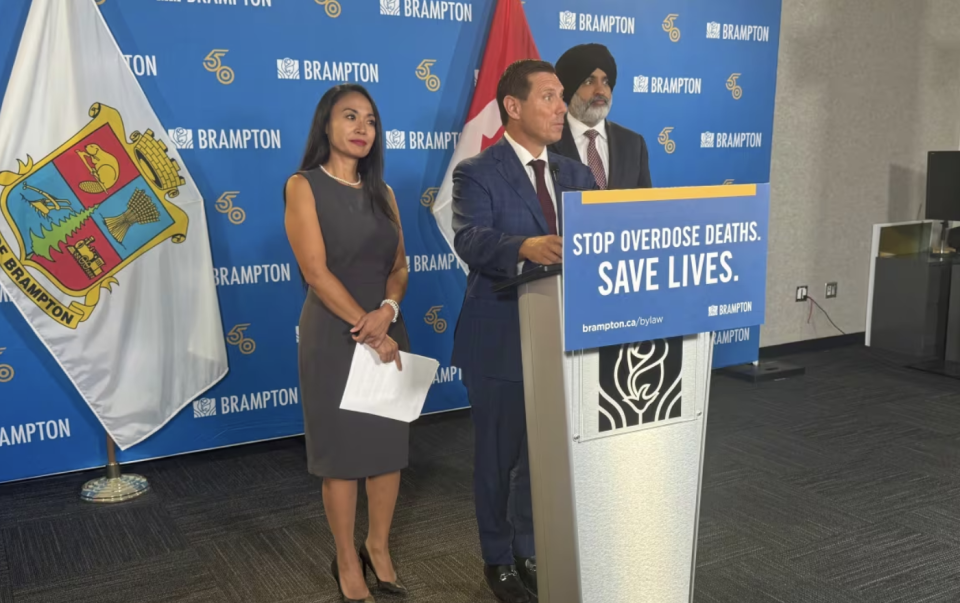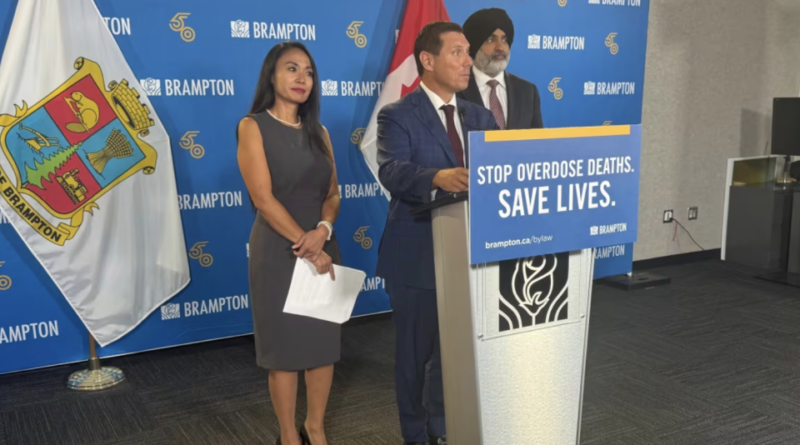Brampton has mandatory addiction treatment, mental health
As Peel County deals with an ongoing drug addiction crisis, Brampton’s mayor is making a controversial pitch to the Ontario government, asking the province to allow independent treatment for people dealing with problems. of mental health and alcoholism.
At a press conference Thursday, Brampton Mayor Patrick Brown called on the province to implement a pilot program that would allow first responders in Peel County to place people with severe addictions, mental health issues and brain injuries in a mental institution against their will – if deemed necessary by a doctor.
That would require changes to the province’s Mental Health Act, something the Premier says he is open to.
Although non-selective therapy has its detractors, with advocates and medical professionals concerned about its effectiveness and its impact on individual rights, the idea is already being seriously considered in some parts of the country. .
British Columbia, a province that has struggled for years with one of the country’s worst drug crises, announced this week that it will expand voluntary care for people with and mental health problems and alcoholism. New Brunswick is also putting together a similar change.
Brown, who referred to voluntary treatment as “compassionate care,” said Ontario needs to follow suit.
“The pathway from British Columbia provides an important lifeline for those in crisis, helping people regain control when addiction hinders their ability to seek help,” said Brown.
“If someone has a heart attack and they can’t explain that they need to go to the hospital, you still take them to the hospital to get treatment,” he said.
“There are people who are dying and need treatment.”


Peel County continues to experience an excess of drug-related health emergencies and mental health issues, Brown said, noting there have been 705 poisoning-related deaths. in the last five years. He said Brampton is at the epicenter of the region’s crisis.
Since 2010, visits to Brampton’s mental health and addictions emergency department in urgent care have increased 121 percent, he said. That puts more pressure on emergency health care and Peel Regional Police, who Brown says have received more than 30,000 calls related to mental health and addiction since 2022.
Forced treatment raises legal, medical questions
But this proposition has its detractors.
Last year, the Canadian Civil Liberties Union opposed proposals to implement involuntary treatment in New Brunswick and British Columbia, saying it violated individual rights and could be unconstitutional.
Brown said Thursday he expects voluntary care to be challenged in court, but Brampton has held extensive discussions on the issue and believes it will prevent hundreds of unnecessary deaths.
On Thursday, Dr. David Gratzer, a psychiatrist with the Center for Addiction and Mental Health (CAMH), told CBC Radio’s. Metro Morning that doctors are now able to treat a person against their will in unusual situations, such as when a person does not eat or sleep or is close to death.
Expanding those powers is not the answer, he said, though he praised Brampton for exploring new ways to deal with the crisis. Gratzer said the problem is complex and requires complex solutions.
More investment in mental health and addiction resources is a good start, he said.
“We need to build the capacity of people who want to have the mindset to have that choice,” he said.
“Let’s create the tools so that someone addicted today, say, to fentanyl, can get the treatment they want – not in 10 weeks, not 15 weeks, 20 weeks – but today.”
Gratzer said more resources and responses to the root causes of mental health problems, addiction and homelessness will also prevent more deaths.
Brampton Country. Rowena Santos said on Thursday that non-selective treatment would be only a small part of the government’s comprehensive response to the problem, and should only be used as a last resort.
“It is important that any policy is accompanied by broader measures that address the root causes of addiction and homelessness,” Santos said.
“Just locking people up for treatment without addressing the underlying problems in society, like homelessness, is not going to lead to permanent recovery,” he said.
The province is open to feedback, but it’s still a work in progress
To adopt “compassionate care” in Peel County, the province will have to make changes to the Mental Health Act.
Asked about voluntary treatment at a press conference Wednesday, Premier Doug Ford said Mental Health and Addictions Minister Michael Tibollo is “a big fan,” and the province is considering it.
“But we have to look at it seriously,” he said.
In an emailed statement on Thursday, Minister Tibollo’s spokesperson, Hannah Jensen, said the province’s focus “is to create a priority care system to connect people seeking treatment with the care, support and treatment they need, wherever and whenever they need it.”
The province recently announced it will spend $378 million to support 19 “Homelessness and Addiction Treatment” centers across Ontario, while banning supervised use areas near schools and institutions. of child care.
Mayor Brown said Thursday he believes there are compassionate care players within the provincial government, and hopes leaders in Peel County, and other Ontario cities struggling with drug-related deaths, they can “push the government away from the status quo.”
#Brampton #mandatory #addiction #treatment #mental #health
